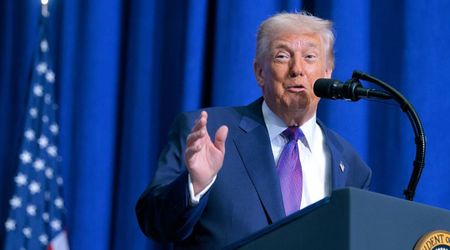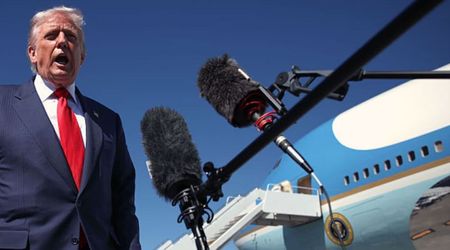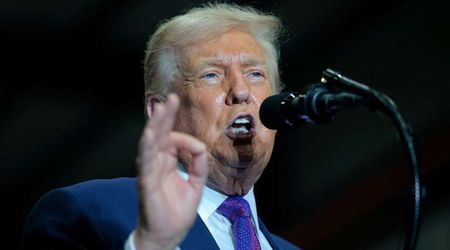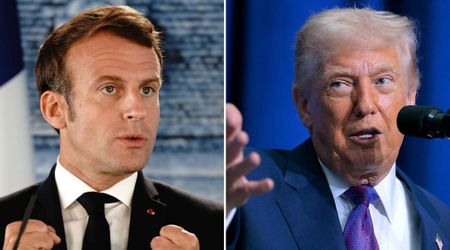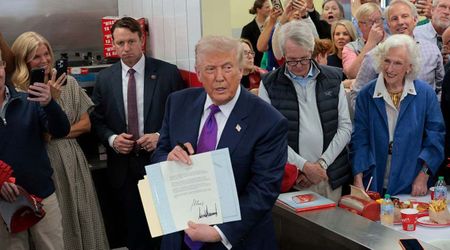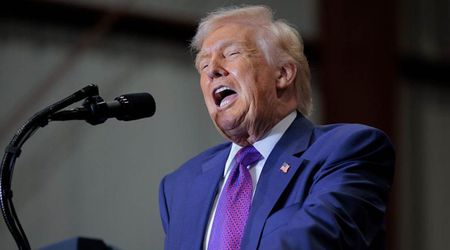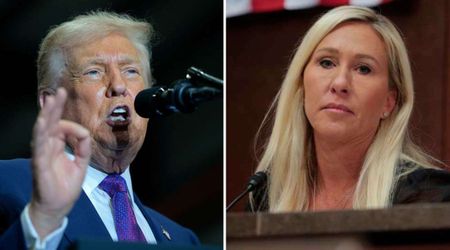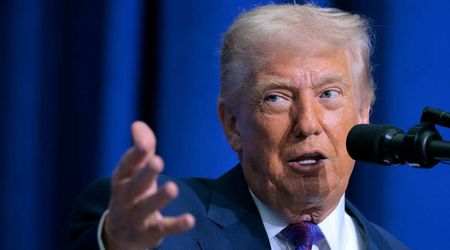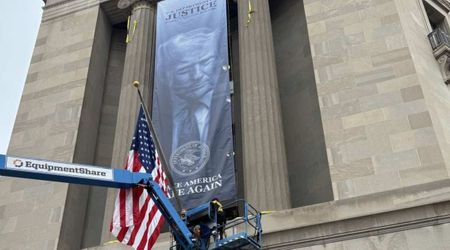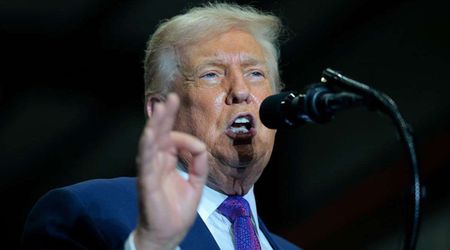A look at key evidences in Donald Trump's hush money trial central to his immunity claims

NEW YORK CITY, NEW YORK: Former President Donald Trump is currently embroiled in a legal battle where he contends that certain pieces of evidence presented in his recent hush money trial should be considered protected under the Supreme Court’s presidential immunity ruling.
Trump argues that although he is not claiming immunity from the 34 counts on which he was convicted, the verdict should be overturned because some evidence involved 'official acts' that should not have been shown to the jury.
The Manhattan District Attorney, Alvin Bragg, and his office are contesting Trump's assertions. Meanwhile, Judge Juan Merchan has postponed Trump's sentencing until September. As the case progresses, Trump’s legal team has indicated specific pieces of evidence they believe fall under the protection of presidential immunity, as detailed in a letter to the court.
Testimony from Hope Hicks turned against Donald Trump
A key piece of evidence Trump is challenging is the testimony from Hope Hicks, who was Trump's 2016 campaign press secretary and later served in his White House.
During her testimony, Hicks recounted a conversation with Trump from 2018, where he said that it was preferable for a damaging story to emerge at that time rather than closer to the 2020 election. She stated, “It was Mr Trump’s opinion that it was better to be dealing with it now and that it would have been bad to have that story come out before the election.”
The testimony could be used to support the prosecution's argument that the hush money paid to Stormy Daniels was campaign-related rather than an attempt to avoid personal embarrassment.

Prosecutor Joshua Steinglass highlighted Hicks' testimony during his closing arguments, suggesting it was crucial evidence against Trump. Steinglass remarked, “She basically burst into tears a few minutes -- a few seconds after that because she realized how much this testimony puts the nail in Mr Trump's coffin.”
Lawyers request to consider Donald Trump's tweets as protected official acts
Trump’s legal team also argues that six of his tweets, posted while he was President and shown to the jury, should be considered protected official acts. These tweets primarily targeted Michael Cohen, Trump’s former personal attorney who made the hush money payment and later cooperated with federal investigators.
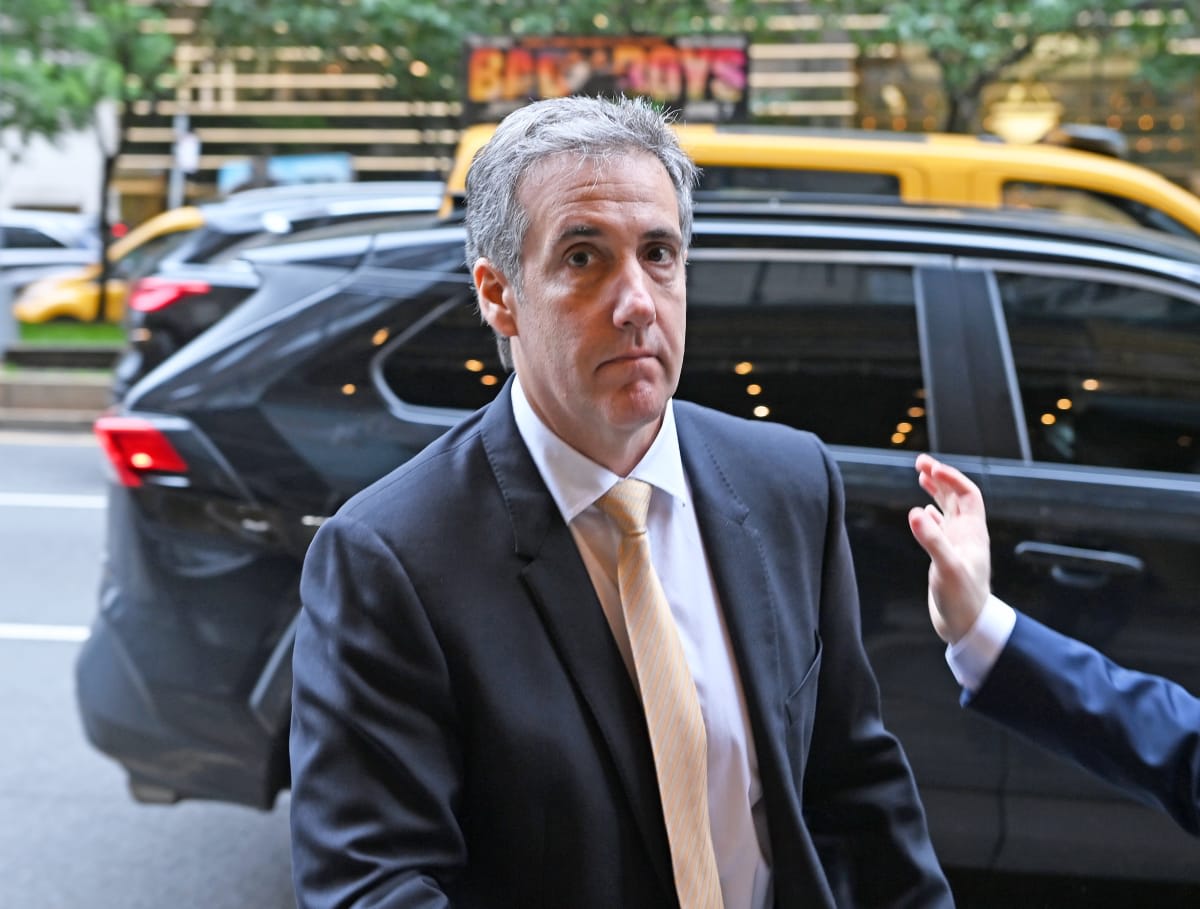
In an April 2018 tweet, Trump criticized The New York Times and reporter Maggie Haberman, suggesting they were attempting to coerce Cohen into turning against him. Trump posted, "The New York Times and a third rate reporter named Maggie Haberman speak to and have nothing to do with, are going out of their way to destroy Michael Cohen and his relationship with me in the hope that he will ‘flip'.”
“They use non-existent 'sources' and a drunk/drugged up loser who hates Michael, a fine person with a wonderful family. Michael is a businessman for his own account/lawyer who I have always liked & respected. Most people will flip if the Government lets them out of trouble, even if it means lying or making up stories. Sorry, I don’t see Michael doing that despite the horrible Witch Hunt and the dishonest media!”
....non-existent “sources” and a drunk/drugged up loser who hates Michael, a fine person with a wonderful family. Michael is a businessman for his own account/lawyer who I have always liked & respected. Most people will flip if the Government lets them out of trouble, even if....
— Donald J. Trump (@realDonaldTrump) April 21, 2018
Cohen did, in fact, cooperate with federal investigators, pleading guilty later in 2018. Trump also tweeted about the payments to Cohen, insisting they were private transactions unrelated to the campaign, which contrasted with the prosecution’s argument.
"Mr Cohen, an attorney, received a monthly retainer, not from the campaign and having nothing to do with the campaign, from which he entered into, through reimbursement, a private contract between two parties, known as a non-disclosure agreement, or NDA," he wrote.
Additionally, Trump showed sympathy for Paul Manafort, his former campaign chairman, in an August 2022 post, contrasting Manafort’s refusal to cooperate with Cohen’s actions.
He wrote, "I feel very badly for Paul Manafort and his wonderful family. 'Justice' took a 12 year old tax case, among other things, applied tremendous pressure on him and, unlike Michael Cohen, he refused to 'break' - make up stories in order to get a 'deal.' Such respect for a brave man!"
Trump slammed Cohen once again in another post the same day, writing, "If anyone is looking for a good lawyer, I would strongly suggest that you don’t retain the services of Michael Cohen!"
Mr. Cohen, an attorney, received a monthly retainer, not from the campaign and having nothing to do with the campaign, from which he entered into, through reimbursement, a private contract between two parties, known as a non-disclosure agreement, or NDA. These agreements are.....
— Donald J. Trump (@realDonaldTrump) May 3, 2018
I feel very badly for Paul Manafort and his wonderful family. “Justice” took a 12 year old tax case, among other things, applied tremendous pressure on him and, unlike Michael Cohen, he refused to “break” - make up stories in order to get a “deal.” Such respect for a brave man!
— Donald J. Trump (@realDonaldTrump) August 22, 2018
If anyone is looking for a good lawyer, I would strongly suggest that you don’t retain the services of Michael Cohen!
— Donald J. Trump (@realDonaldTrump) August 22, 2018
During his presidency, the White House at one point said Trump’s tweets counted as “official statements.”
Government ethics form and call records requested to be considered under 'official act'
Trump’s 2018 government ethics form, which references the hush money arrangement, is another piece of evidence his lawyers believe should not have been shown to the jury.
The form mentions, “[I]n 2016 expenses were incurred by one of Donald J Trump’s attorneys, Michael Cohen. Mr Cohen sought reimbursement of those expenses and Mr Trump fully reimbursed Mr Cohen in 2017.”
Prosecutors have claimed that this document suggests that the payments Trump made to Cohen, which correspond to the 34 counts, were indeed reimbursements for Cohen’s payment to Daniels. On the other hand, the defense has claimed that the payments were legal retainer fees for Cohen’s work.

Finally, Trump’s legal team argues that the jury should not have seen toll records showing calls involving Trump while he was in the White House. These call logs, presented extensively during the trial, included four calls between Trump and Cohen during Trump’s presidency, suggesting a direct link between Trump and the hush money payments, The Hill reported.
This article contains remarks made on the Internet by individual people and organizations. MEAWW cannot confirm them independently and does not support claims or opinions being made online.

